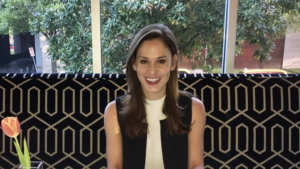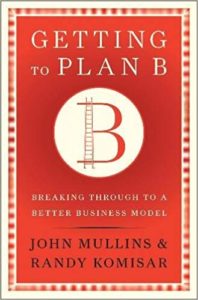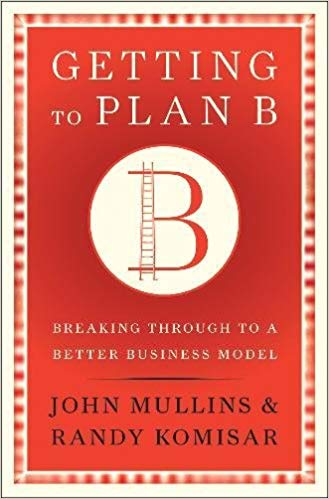Katy Aucoin’s original plan when she founded Dearduck in 2015 seems exciting and profitable, to my untrained eyes. Three years later, following an investment by startup accelerator RealCo and a move from the City of Houston to San Antonio’s tech hub on Houston Street, Dearduck plans to make money in a very different way than when Aucoin started.
Shifting away from an original business plan isn’t unusual. It’s the norm. Venture capitalist Randy Komisar and business professor John Mullins wrote the now-classic Getting To Plan B: Breaking Through To A Better Business Model because entrepreneurs almost never succeed based on their first business plan.
As Komisar and Mullins describe it, a startup founder sets out with the first version of her business to test her business hypothesis. As data from those tests comes back, she hopefully figures out in time the need to develop a Plan B. Customers might not respond the way you expect. Your pricing model could be off. Any number of startup assumptions could turn out to be wrong and the data will let you know.
 With Dearduck, Aucoin began with a passionate idea, and an assumption. Gift-buying for other people – a friend, a co-worker, a lover – is an opportunity to strengthen a relationship, or not. She set out to build a better way to buy gifts for other people, using easy and fun surveys and data analytics to aid in gift curation.
With Dearduck, Aucoin began with a passionate idea, and an assumption. Gift-buying for other people – a friend, a co-worker, a lover – is an opportunity to strengthen a relationship, or not. She set out to build a better way to buy gifts for other people, using easy and fun surveys and data analytics to aid in gift curation.
Before calling Aucoin, I took some online Dearduck surveys, which walked me through series of picture-based choices: one survey regarding pets, another regarding booze. With this data, Aucoin says, Dearduck begins to identify my “consumer DNA,” unique to me. Through the first Dearduck app, she has the consumer DNA of up to 50,000 unique buyers. It indicates what things I like and allows a gift-purchaser to select something that matches my preferences.
In her original business launched in 2017, Dearduck sought to make money by sharing in “affiliate commissions.” In other words, when her data targeting drove a successful online sale, the retailer would pay Dearduck a percentage of that sale.
 Her business has since pivoted to Plan B, but the core idea remains.
Her business has since pivoted to Plan B, but the core idea remains.
With Aucoin, you can hear her zest for gift-buying.
“We want to give someone that happy feeling of finding the right thing. It’s very exciting to think that people could have that feeling all the time. You just feel closer to people as you learn more about them.” By contrast, she says, “when you find yourself saying ‘Oh, if you don’t like it, there’s a gift receipt,’ that’s a problem, you’ve already failed. You already feel defeated about giving a gift.”
But while that initial core idea remains, Aucoin had to reject Plan A for how the business would make money.
Komisar and Mullins’ book may be read as a critique of the idea that startups should build an extensive “business plan,” because that plan will inevitably go wrong. Plan A – as their title implies – isn’t actually going to work. What can substitute for a fixed business plan, according to the authors, is a series of business questions and hypotheses. Then, as data on those questions comes in, a startup founder needs to respond as quickly as possible.
Aucoin’s experience mirror’s this, as the data she collected after launch began to change her business. Retailers began to make requests that she hadn’t expected. Aucoin says she conducted over 100 interviews with retailers. In addition, some of her original data on purchases was messy. She tells a funny anecdote about her boyfriend purchasing gifts for her, only to have his “consumer DNA” suggest that he now regularly wants to buy yoga pants and lipstick. Which, she says, is not quite the right signal to retailers.
As far as we know. Anyway, I’m not judging either way.
With a retooled business model, Dearduck is a few weeks away from launching Plan B, with a large San Antonio retailer. The new plan is that Dearduck’s Consumer DNA data can be used to target relationships – again, between friends, co-workers, relatives, lovers – to aid in gift-buying email campaigns, often timed around an event like a birthday or important date on the calendar. The retailer will pay based on the targeted campaign to potential customers.
 There’s nothing easy or straightforward about doing what Komisar and Mullins say is natural – the rejection of Plan A in favor of a Plan B. Komisar and Mullins don’t really address this in their book, but it’s hard.
There’s nothing easy or straightforward about doing what Komisar and Mullins say is natural – the rejection of Plan A in favor of a Plan B. Komisar and Mullins don’t really address this in their book, but it’s hard.
About downsizing from 6 team members and then moving from Houston to San Antonio, Aucoin says “It’s extremely hard. It’s emotional. You have to be willing to make the right decisions for where the company is going, not where it has been. Your customers will tell you what the product is. ‘This is how I want to use it.’ And then the retailers saying ‘We think you can solve this in a different way’”
Michael Girdley, a founder of RealCo, the accelerator that helped attract Aucoin’s business to San Antonio, finds her business shift natural. He says,
“If you’re blazing a new trail, it’s completely normal and expected. Obviously, dentists or similar established business models don’t have that challenge.”
Girdley continues,
“In startups, it’s the norm rather than the exception to learn things about your market and shift directions after starting.”
Entrepreneurs reading this: I’m interested in your stories. Are you on Plan B? Or Plan Z? Or were you, unusually, correct in your business assumptions right from the beginning?
A version of this ran in the San Antonio Express News and Houston Chronicle.
Please see related posts:
Entrepreneurs: Take Half the Luggage and Twice the Money
Post read (337) times.






